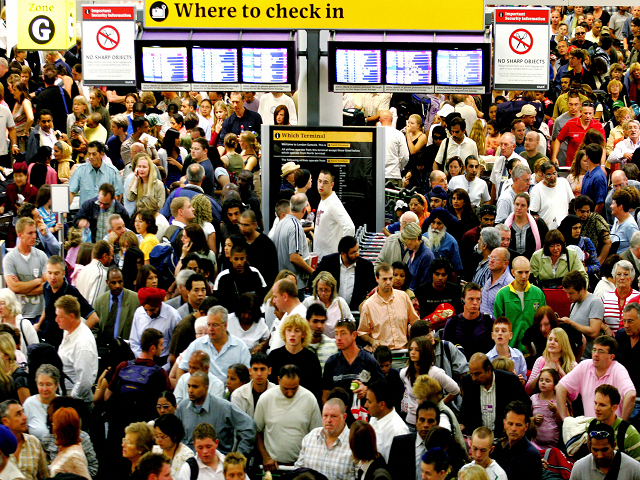The Lords have been told that there is no need to guarantee employers permanent access to a large pool of low-skilled foreign labour after Brexit, as investment and higher wages can make the country “self-sufficient” in workers.
“We have 1.5 million unemployed, and one million part-time looking for full-time work,” the former diplomat and chairman of Migration Watch, Lord Andrew Green, has told the Lords Economic Select Committee. “It’s not as if the barrel is empty.”
Lord Green emphasised that “strong public demand to reduce immigration” made achieving a substantial reduction a democratic imperative.
The present government remains committed to a target of bringing net immigration down “from the hundreds of thousands to the tens of thousands” which was first set in 2010 but has been missed by a wide margin every year.
“I would say that even 100,000 [migrants] a year would add about nine million to our population over the next twenty-five years”, Green noted, suggesting that controlling population growth, reducing strain on public services and encouraging community cohesion should be the government’s policy focus.
Also providing evidence at the hearing was Philippe Legrain, a visiting senior fellow at the London School of Economics European Institute and an adviser to former European Commission president José Manuel Barroso. Legrain expressed outrage that Lord Green could suggest that self-sufficiency was desirable.
“Self-sufficiency is clearly feasible,” the economist conceded. “I mean, Robinson Crusoe scraped by on his island. But the idea that it’s desirable is insane!”
“What is self-sufficiency if not ‘British jobs for British workers’?” Legrain asked again later, clearly incredulous.
Paradoxically, the self-described “citizen of the world” has claimed elsewhere that a substantial reduction in the Swedish population between the 1870s and 1910s “relieved pressure on the land, drove up the productivity and wages of those who remained, and helped catapult Sweden from grinding rural poverty to prosperity within fewer than 50 years.”
His own favoured policy on migration is global free movement. He argues that any controls at all are “economically stupid, politically unsustainable, and morally wrong”.
Legrain’s extreme open borders advocacy was briefly picked up by Lord Forsyth of Drumlean, the former Secretary of State for Scotland, at the hearing: “Basically what you’re advocating is a complete free-for-all,” he pointed out.
“The problem we have is that people can’t get GPs appointments; the National Health Service is under enormous pressure; there’s huge opposition to building on the green belt. Isn’t this an idealistic economic model which is completely impractical in terms of the real problems that we face?”
Legrain countered that “any strains that emerge on public services are not due to [immigration], but rather due to the failure of public services to be flexible or adapt to change”.
The hearing comes just week’s after Migration Watch revealed that British businesses would not face a shortfall of workers post-Brexit.

COMMENTS
Please let us know if you're having issues with commenting.